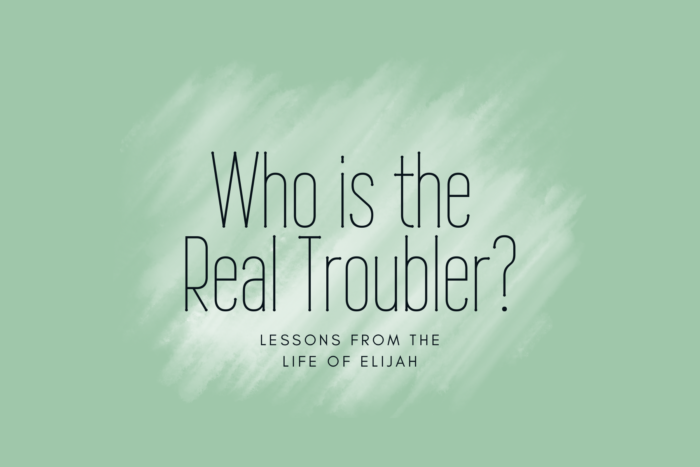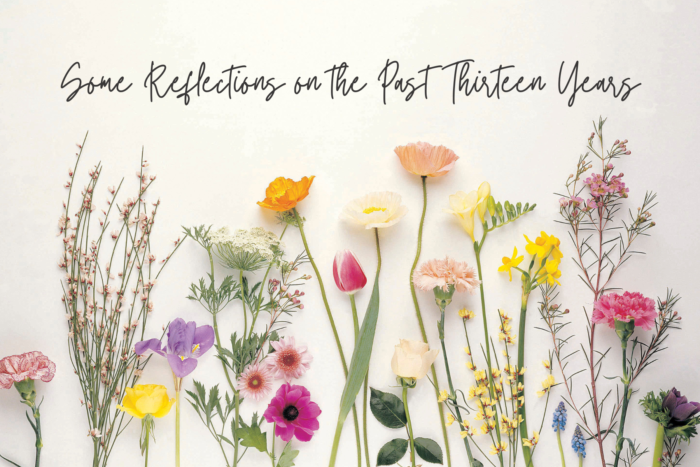So Quickly Forgotten
A few months ago, I was reading an old commentary on the pastoral epistles by an author with the name of Homer Kent. When I turned to the back of the book, I saw a photo of a middle-aged man that looked a bit familiar. You see, by the time I was acquainted with who this man was, he was president of the college I was attending. I thought he was old and, if I am blatantly honest…pretty irrelevant. As a naive college student, I had zero appreciation for all he had accomplished (and written). And yet, here he had made this really helpful contribution to the Christian world long before I was even born.
But, my guess is that very few of you have ever heard his name. He lived, he worked for Jesus, and then he died. Some of his works live on, but they aren’t popular or considered classics. I doubt most of you have heard of them, either.
A few weeks back, we attended an event at the Christian school where our kids had attended high school. When our kids were there we were actively involved and knew lots and lots of faces. But five years after our youngest had graduated, we knew few people. And even fewer people cared if we were there or not. We had gone from being an active part of the school family to being completely irrelevant.
Around the time of these two happenings, I saw an Instagram reel that talked about how we won’t be remembered in a hundred years. We are all so quickly forgotten. Even celebrities aren’t really remembered all that much. Do you know or care who was a movie star in the 1940s? Fame and popularity are just so fleeting, on whatever level we have it (national, community, church, school).
And, in fact, even our descendants will probably know very little about us. I know so little about my great-grandparents and next to nothing about my great-great grandparents other than their names. And I’d even have to think hard about that.
We live and we die and we are quickly forgotten.
And while this Instagram reel was focused on the joy of the daily life and encouraged it’s listeners to stop worrying about the things that are so temporary (“If it’s not going to matter in five years, don’t spend more than five minutes worrying about it”), I want to take a moment and consider this beyond even that wise advice.
What I write here today won’t matter to most people in the world. And, in fact, even few Christians will read this or care about it. And if the Lord tarries for another hundred years, this will have probably gone the way of many other written words through the centuries. With this in mind, it changes my perspective and my priorities.
And, yet the fruit of my labors may live on. The fruit of your labors, as well. If a person turns to Christ, it changes their legacy for forever. If a person’s life is changed through their study of the Word, they have an eternal impact on their families and co-workers and whoever God brings into their lives.
And I am, once again, reminded of Matthew 6:19-21 and Colossians 3:1-4. These verses remind us that we want to think on things above and build up our treasures there. If we can stay focused on this, then we can weather disappointing responses or hurtful remarks. We can handle rejection or just being ignored. We can stand strong through the antagonism and the hatred. Because these things are so temporary.
But as soon as we move our eyes to ourselves, we are so vulnerable. We get so entangled in our feelings and it strangles us and our effectiveness for Christ.
So let’s remember today what really matters and let’s encourage one another to love and good works (Hebrews 10:24). While the world may so quickly forget us, the impact of our work for Christ will live on. May we keep doing the good works the Lord has prepared for us and embrace the opportunities He has given us to share the Gospel and support and encourage fellow believers.
Let’s point people to Christ. Let’s direct them to the Word. And let’s work through those unpleasant and very temporary feelings we may experience as we work, through keeping our eyes on things eternal.
And, may we remember: While our names may be quickly forgotten on earth, the impact of our works for Christ will leave a lasting legacy on the families that turn to Christ and walk with Him because of our courage to speak up and our obedience to serve Christ instead of self.
To God be the Glory!
For by grace you have been saved through faith, and that not of yourselves; it is the gift of God, not of works, lest anyone should boast. For we are His workmanship, created in Christ Jesus for good works, which God prepared beforehand that we should walk in them. (Ephesians 2:8-10)










